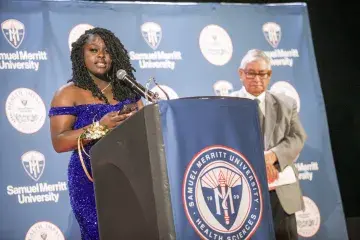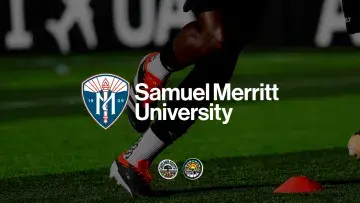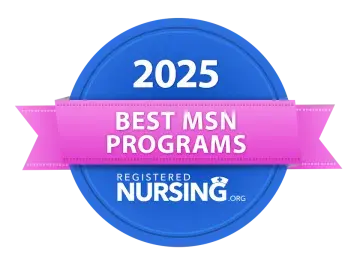Why Interprofessional Education is the Future of Healthcare
Student Voices is a blog series written by SMU students. If you have an idea for a story, reach out to ssolo@samuelmerritt.edu. This article is written by DPT student Meira Prescher.
Over time, healthcare professionals have become more knowledgeable and specialized within their fields. Our specialization has made us better clinicians and more valuable resources for our patients, but it’s also made it us less capable of treating the whole patient. The more knowledgeable we are in our specialty, the less knowledgeable we are about other aspects of the patient case. Luckily, we have many other members of the healthcare team who are more qualified to treat the aspects of the patient case we haven’t been trained in. Only as a team can we address all of our patient needs.
As a physical therapy student on clinical rotation, I relied heavily on input from speech therapists, occupational therapists, physician assistants, nurses and doctors to understand the overall presentation of the patient. Each of these specialties was able to add information that I was able to use to make my treatment session more effective and I was able to provide findings to help the rest of the team as well.
Speaking to a speech therapist about a shared patient with expressive aphasia gave me the tools to effectively communicate with her, allowing me to build rapport with her and improving the effectiveness of my treatment. The therapist taught me how to use the language app she had provided to the patient to communicate her needs and how to ask questions that could be answered more succinctly with syllables that the patient had shown proficiency in. The patient was able to more effectively communicate her needs to me and felt more confident attempting speech during the therapy session.
When we share our skills and insights with one another, we all function more effectively, and, thus, we help set each other up to provide better patient care. As a DPT student, I’ve found the more I practice interprofessional education in co-learning environments, the more it becomes second nature. Outside of the classroom, mistakes happen when communication breaks down, so early exposure to interprofessional skills building is critical to our development as care providers.


